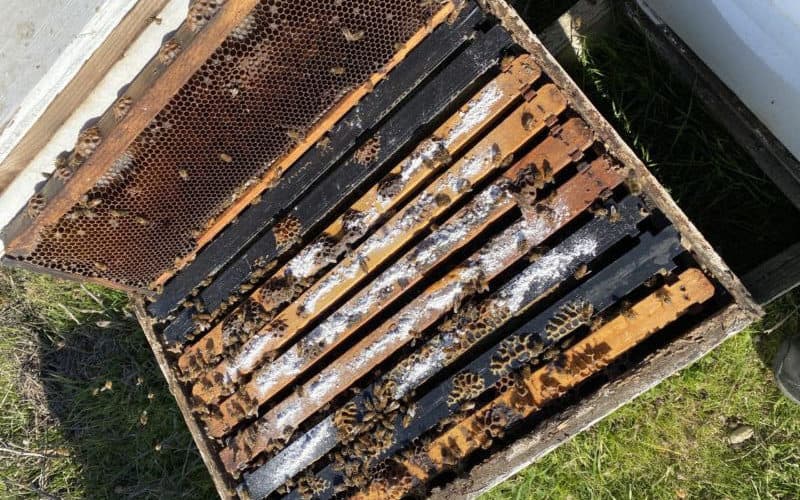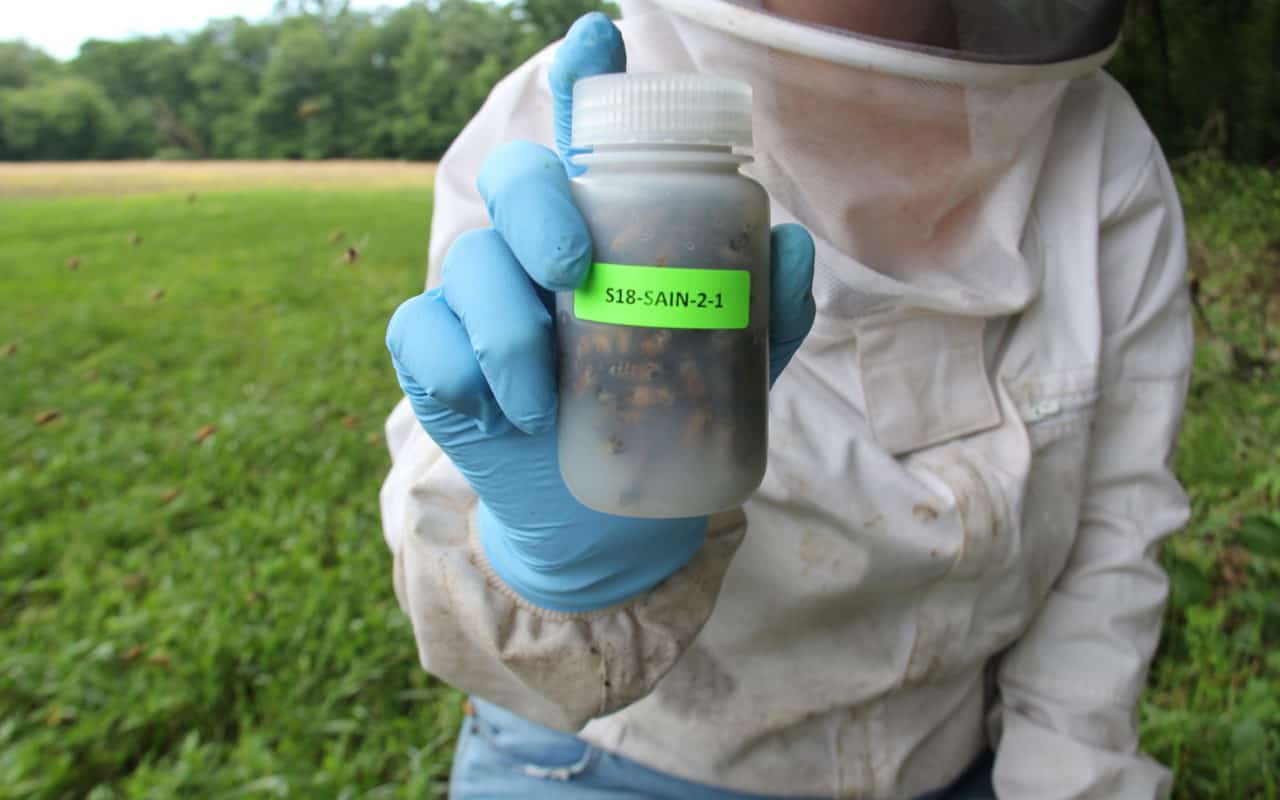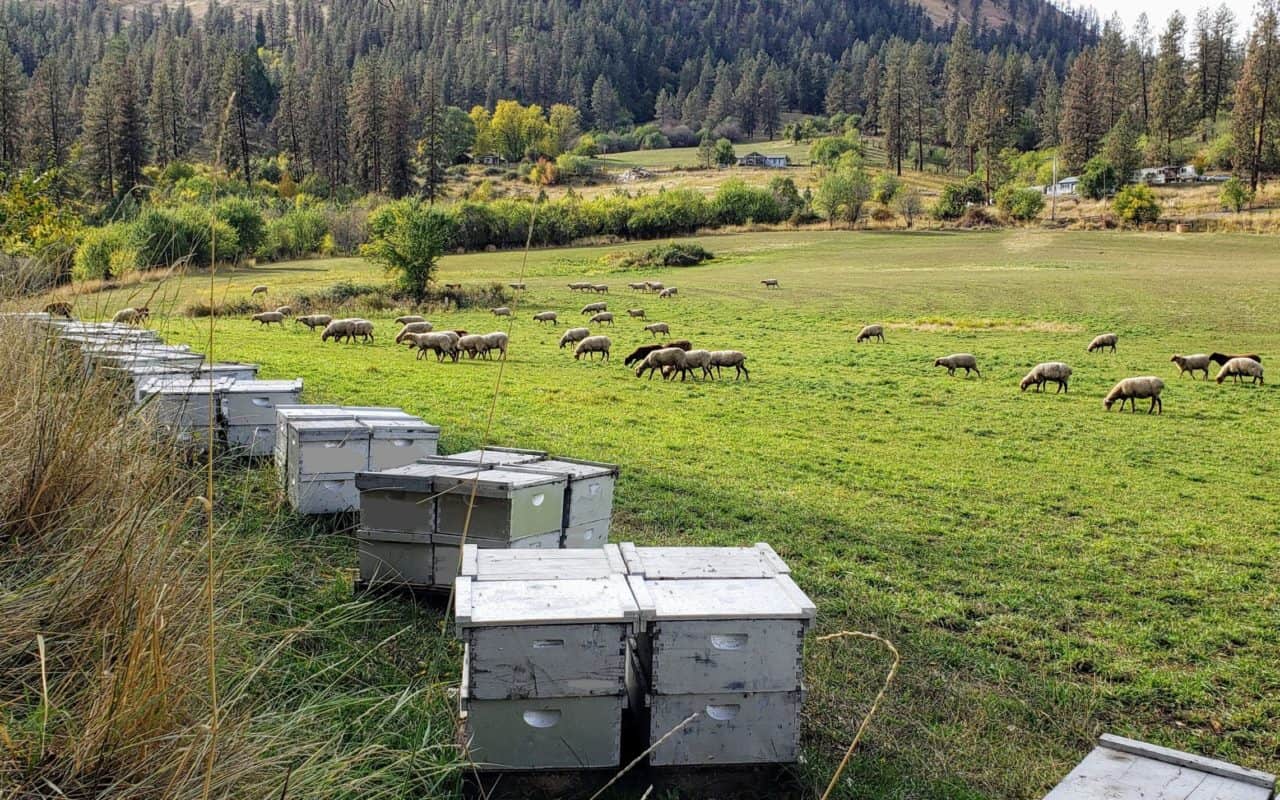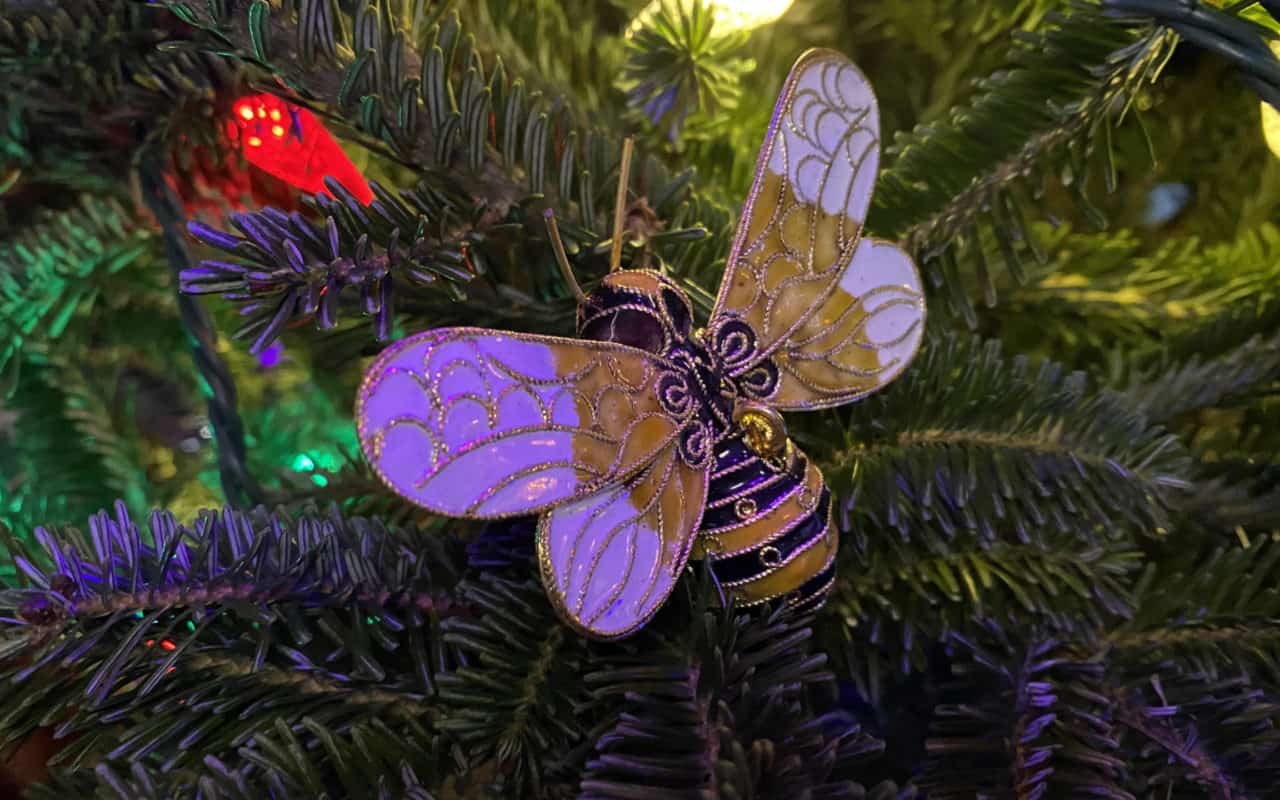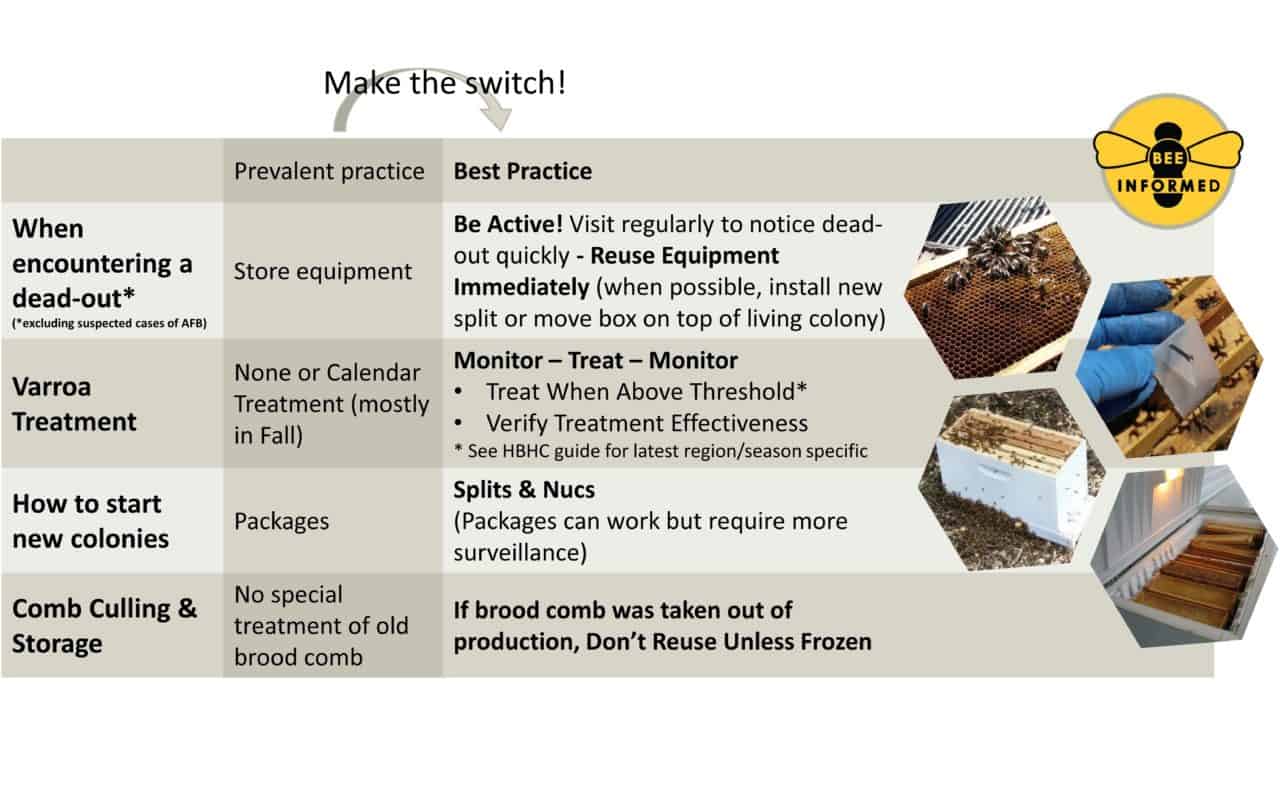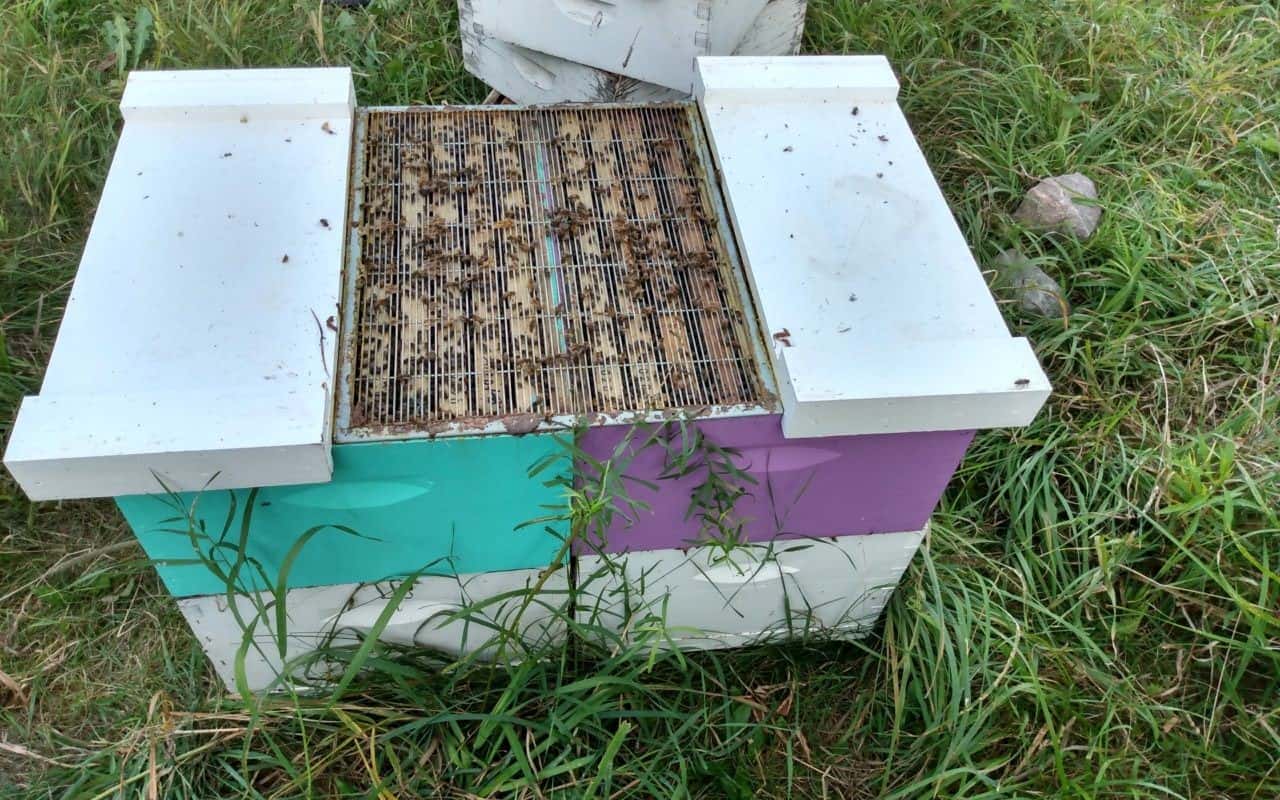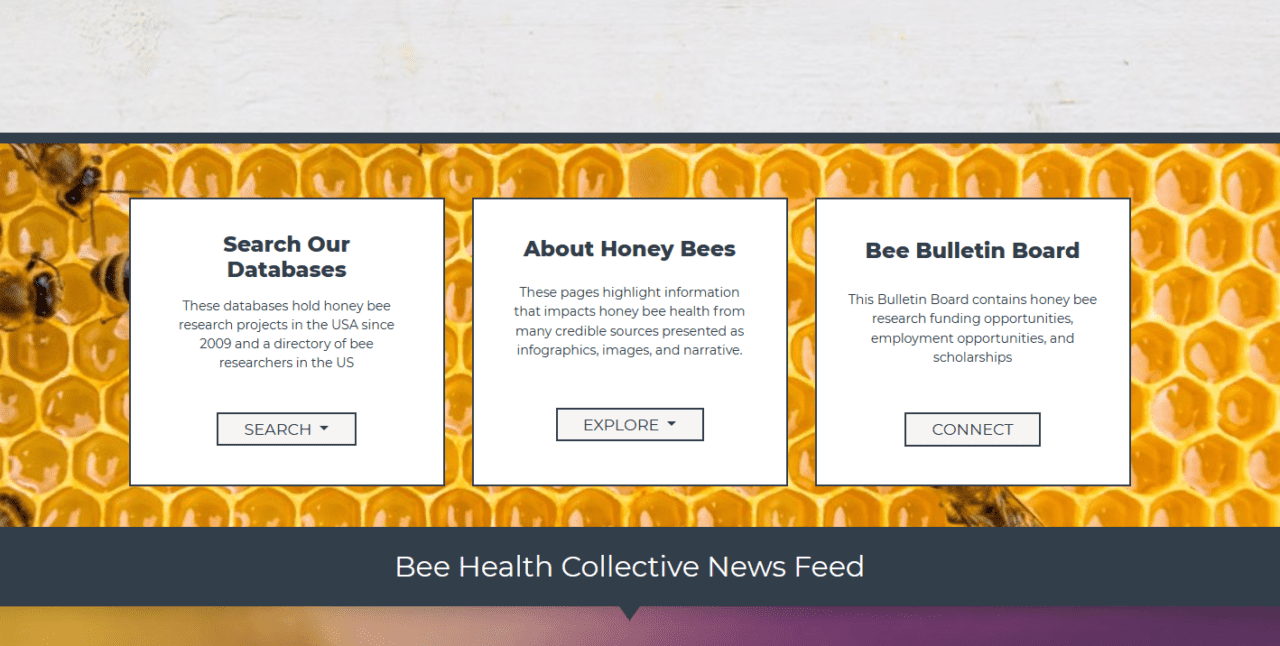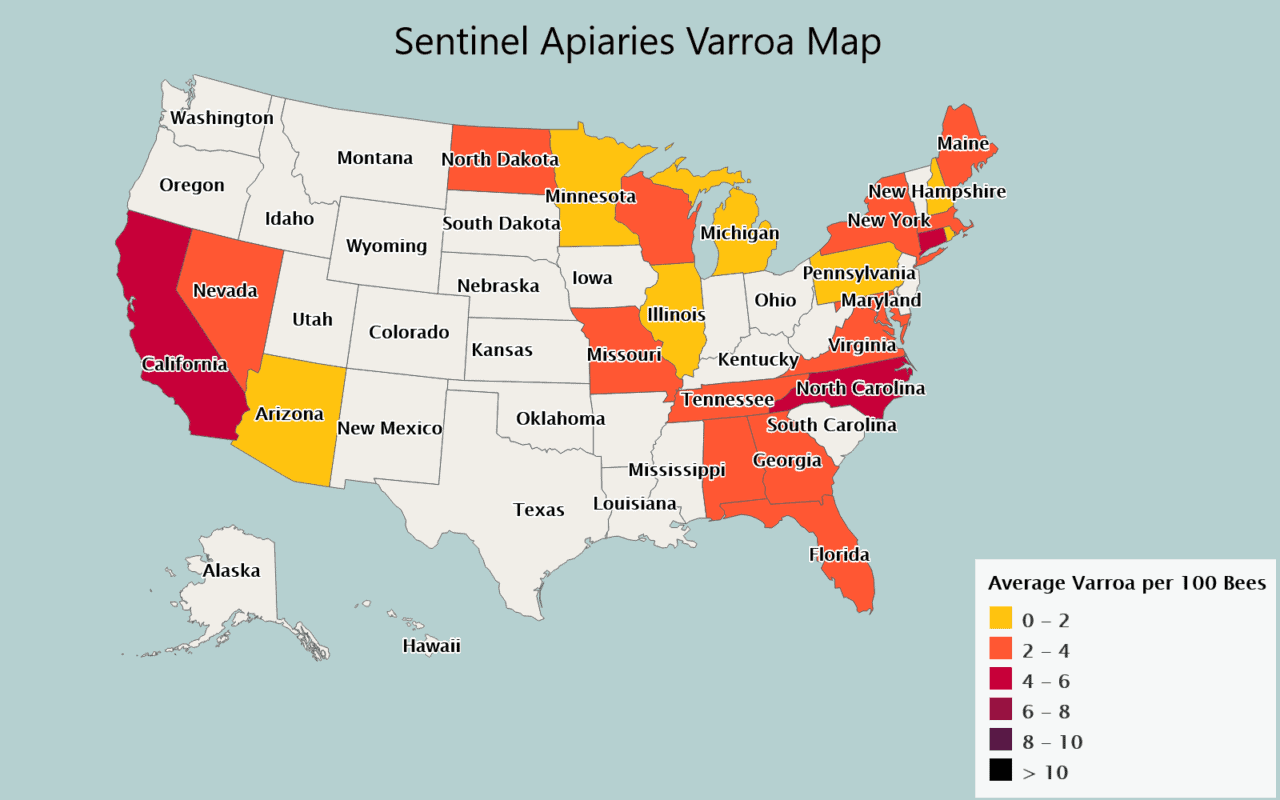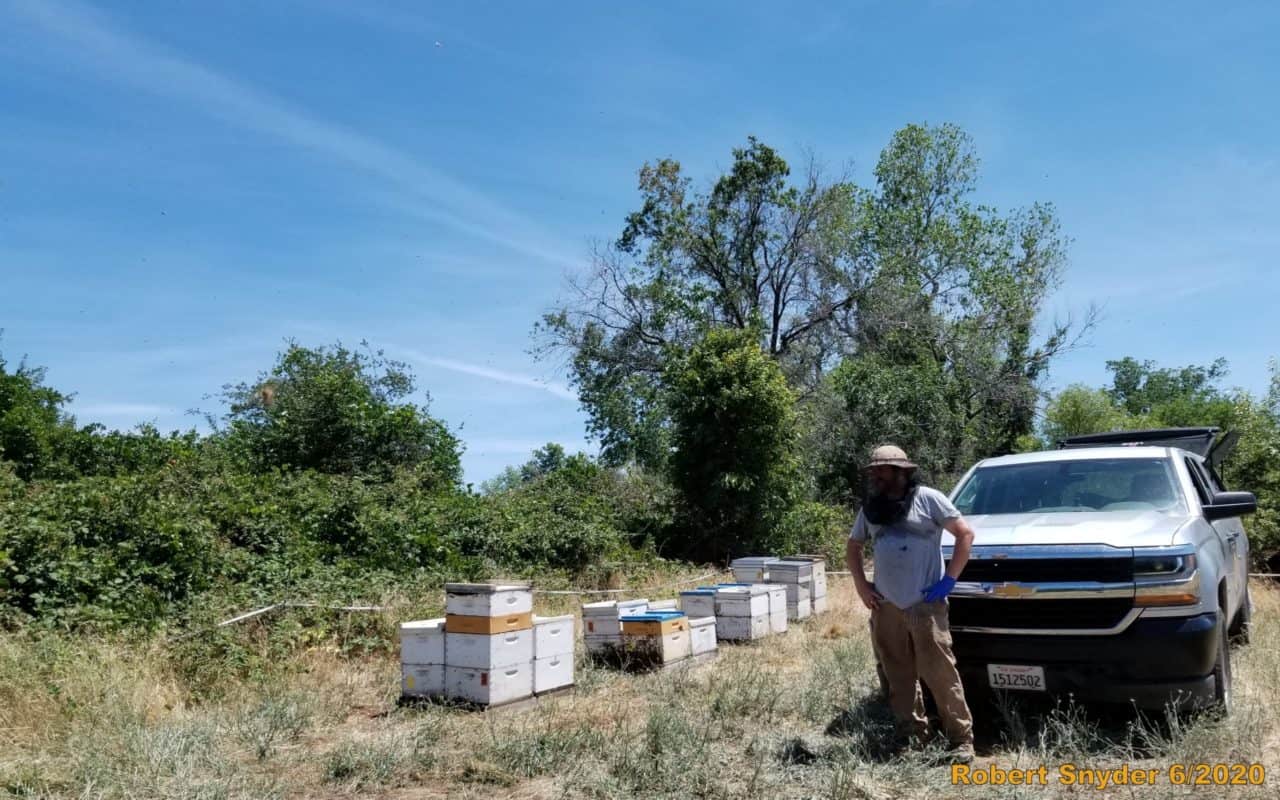In light of the rise in probiotic supplementation's popularity among beekeepers, the California State Beekeepers Association (CSBA) awarded Bee Informed Partnership (BIP) funding to test the colony health benefits of probiotic supplementation in commercial beekeeping operations. To do so, we tested two commercially available probiotic products: SuperDFM, manufactured by Strong Microbials, and Mann Lake's ProDFM. Field trials were conducted between fall 2019-spring 2020 and included colonies from commercial operations in Oregon and California. For each region, three bee yards were selected, and within each yard, four colonies were randomly assigned to one of three groups: SuperDFM; ProDFM; or No supplementation Negative Control, (2 regions x…
Field Testing the Benefits of Probiotic Supplementation in Real World Commercial Beekeeping Operations
Photo credit: BIP California Tech Team Field Specialist Matt Hoepfinger.
